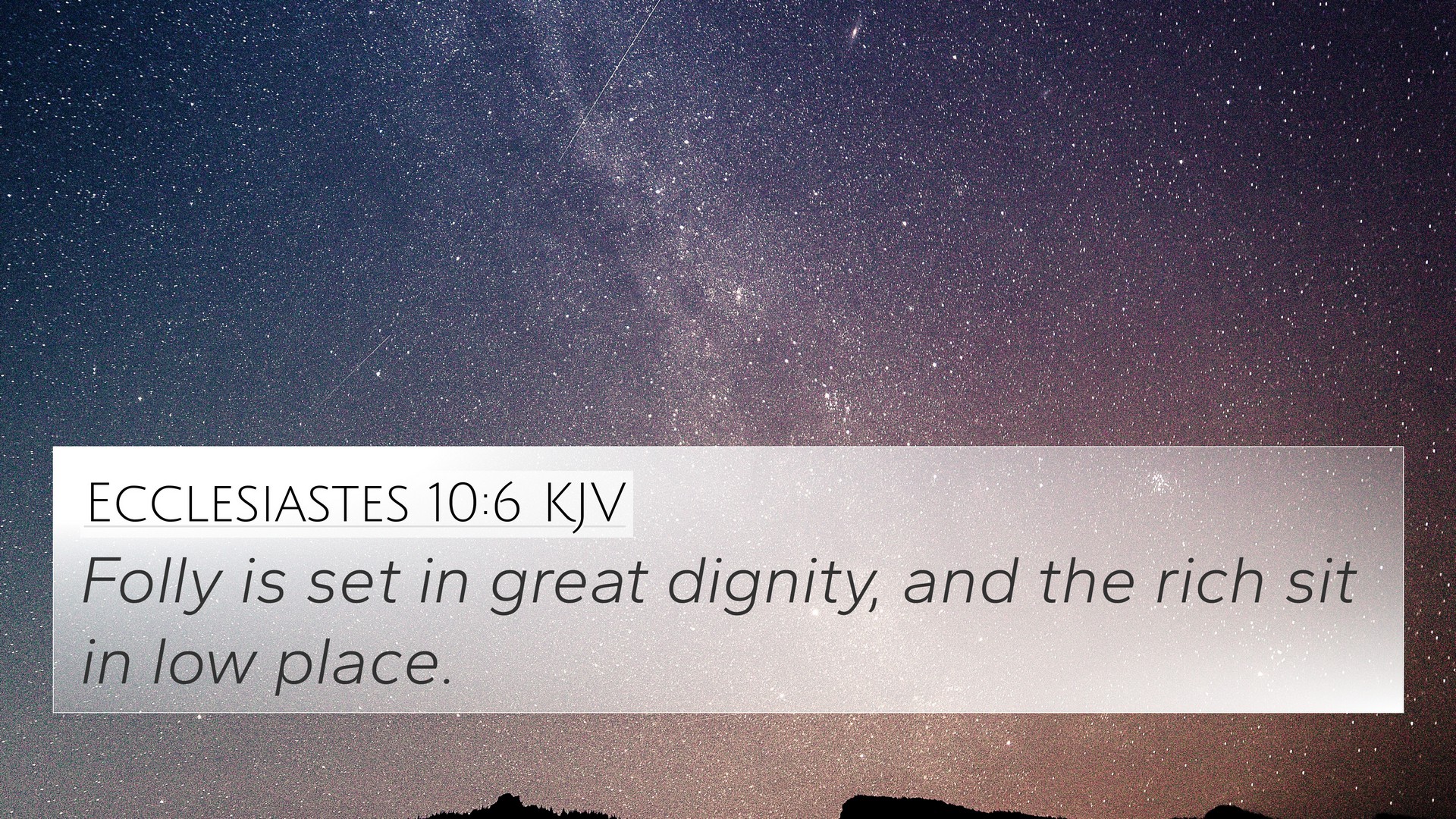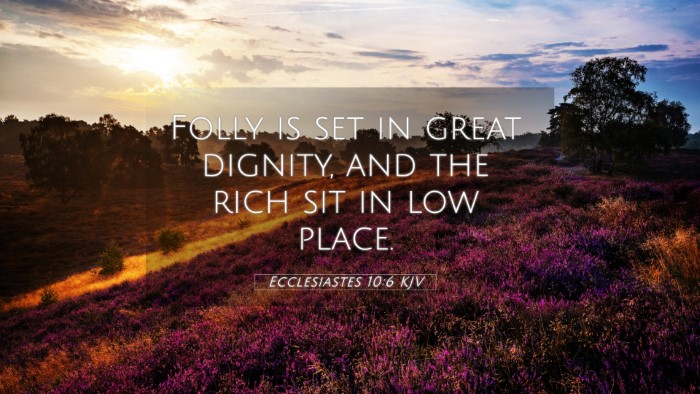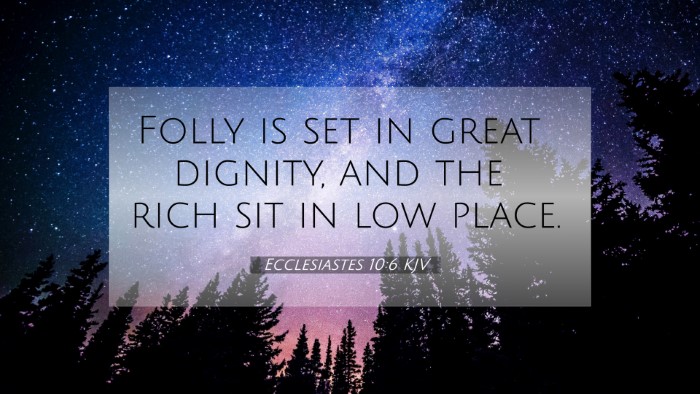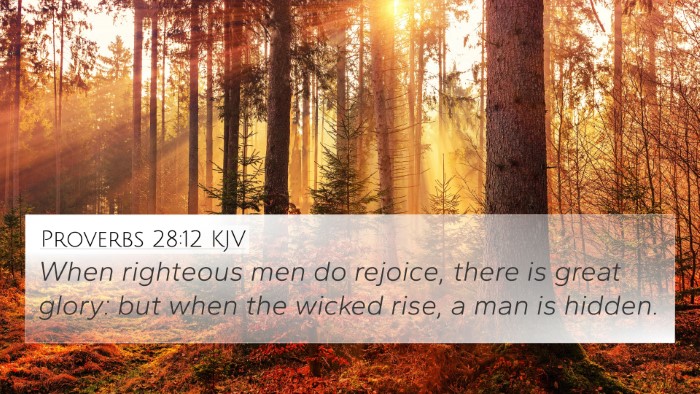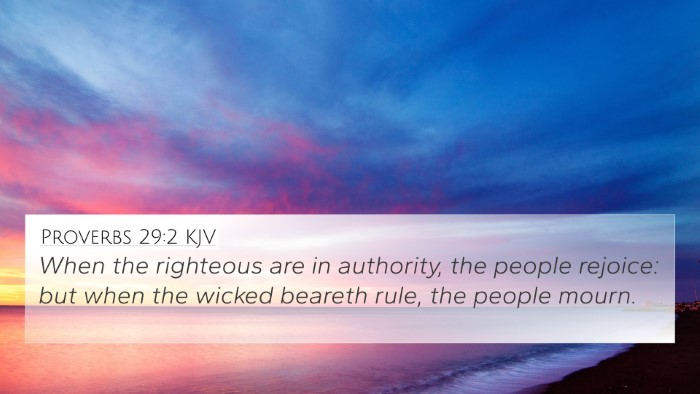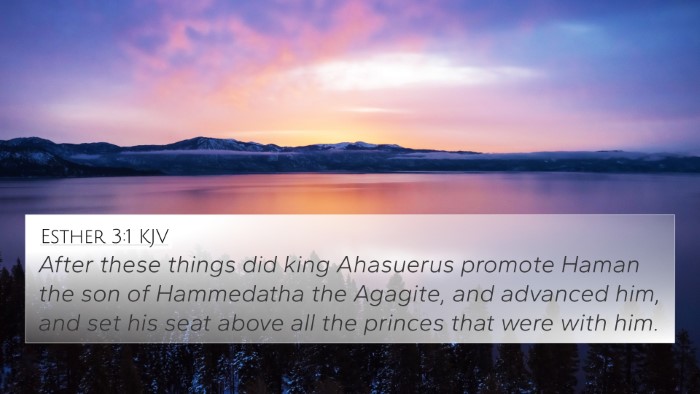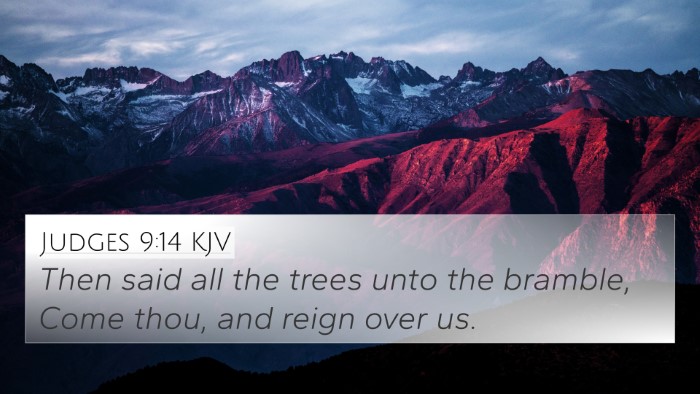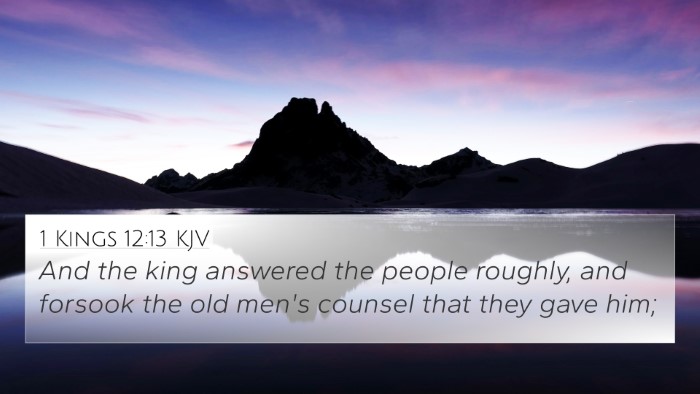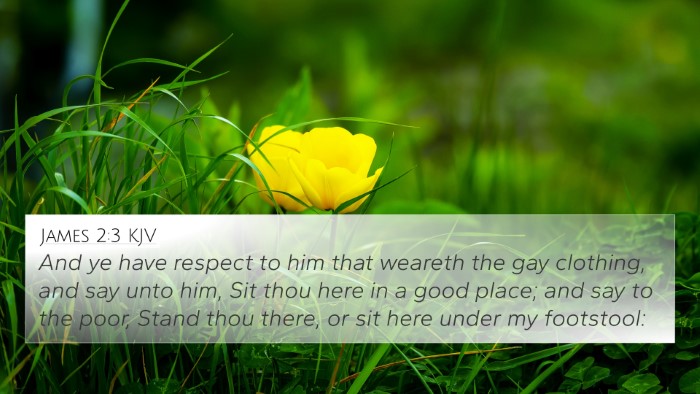Understanding Ecclesiastes 10:6
This verse is a thought-provoking observation on the nature of wisdom and foolishness. Ecclesiastes 10:6 states:
"Folly is set in great dignity, and the rich sit in low place."
Meaning of Ecclesiastes 10:6
In this verse, the Preacher of Ecclesiastes contrasts the state of foolishness and its prevalence in society with the position of the wise and affluent. This commentary draws insights from several public domain commentaries.
Insights from Commentaries
-
Matthew Henry:
Henry emphasizes that folly is often exalted in society. He notes that those who lack wisdom and understanding may rise to prominence, while those who possess true wisdom may be overlooked or marginalized. This underscores the idea that societal values do not always align with divine wisdom.
-
Albert Barnes:
Barnes expands on the metaphor of folly in dignity. He suggests that it reflects societal confusion, highlighting how the 'wise' can be 'fools' in the eyes of the world, while the true wise are often disregarded. This suggests a divine irony about the state of human nature and the wisdom of God.
-
Adam Clarke:
Clarke provides a deeper look into the social implications of this verse. He points out that riches and external conditions do not necessarily denote wisdom or righteousness. The verse serves as a reminder that societal rank does not determine one's value in the eyes of God.
Bible Cross-References
This verse connects with several other Biblical texts that illuminate the themes of wisdom and folly:
- Proverbs 26:12: "Seest thou a man wise in his own conceit? there is more hope of a fool than of him." This draws attention to self-deception.
- James 4:10: "Humble yourselves in the sight of the Lord, and he shall lift you up." This advises humility versus societal elevation.
- Matthew 23:12: "And whosoever shall exalt himself shall be abased; and he that shall humble himself shall be exalted." This reinforces the idea that God values humility.
- Ecclesiastes 5:8: "If thou seest the oppression of the poor, and violent perverting of judgment and justice in a province." This mentions injustice that can accompany wealth and shows the gap between societal perception and divine justice.
- Proverbs 15:25: "The LORD will destroy the house of the proud: but he will establish the border of the widow." This contrasts prideful success with divine establishment.
- 1 Corinthians 1:27-29: "But God hath chosen the foolish things of the world to confound the wise." This speaks to God’s strategy of using the lowly to shame the high-minded.
- Luke 16:19-31: The parable of the rich man and Lazarus illustrates the ultimate reversal of fortunes based on eternal perspectives rather than earthly appearances.
Thematic Connections
The themes present in Ecclesiastes 10:6 resonate throughout the Bible, highlighting the contrast between worldly wisdom and divine wisdom, the state of man's heart, and the nature of God's judgment. Understanding these connections helps emphasize the relevance of this verse.
Connections between Bible Verses
In examining this verse with others, we observe:
- Folly often appears as a central theme in the Book of Proverbs, where it is frequently set against the backdrop of wisdom.
- Societal conditions make rich vs. poor distinctions that Proverbs and Ecclesiastes challenge.
- New Testament references, especially in Pauline letters, discuss wisdom and humility in the context of Christ's teachings.
- The thematic exploration of wisdom as a pathway leads to understanding God's greater purpose, often contrasting math wealth.
Conclusion
Ecclesiastes 10:6 serves as a profound reminder of the disparities between human judgment and divine wisdom. Biblical texts that relate to this verse urge readers to seek wisdom from above rather than relying solely on worldly standards. The insights drawn from the commentaries help illuminate its meaning and further enrich our understanding.
Tools for Bible Cross-Referencing
For those looking to dive deeper into biblical texts and understand their interconnected themes, various tools can assist:
- Bible concordance
- Bible cross-reference guide
- Cross-reference Bible study materials
- Comprehensive Bible cross-reference tools
Additional Study Suggestions
To further explore the connections between scriptures, consider the following:
- How to find cross-references in the Bible.
- Identifying connections between Old and New Testament themes.
- Exploring comparative studies of prophetic messages and teachings from the Gospels.
- Cross-referenced themes that resonate through biblical narratives.
